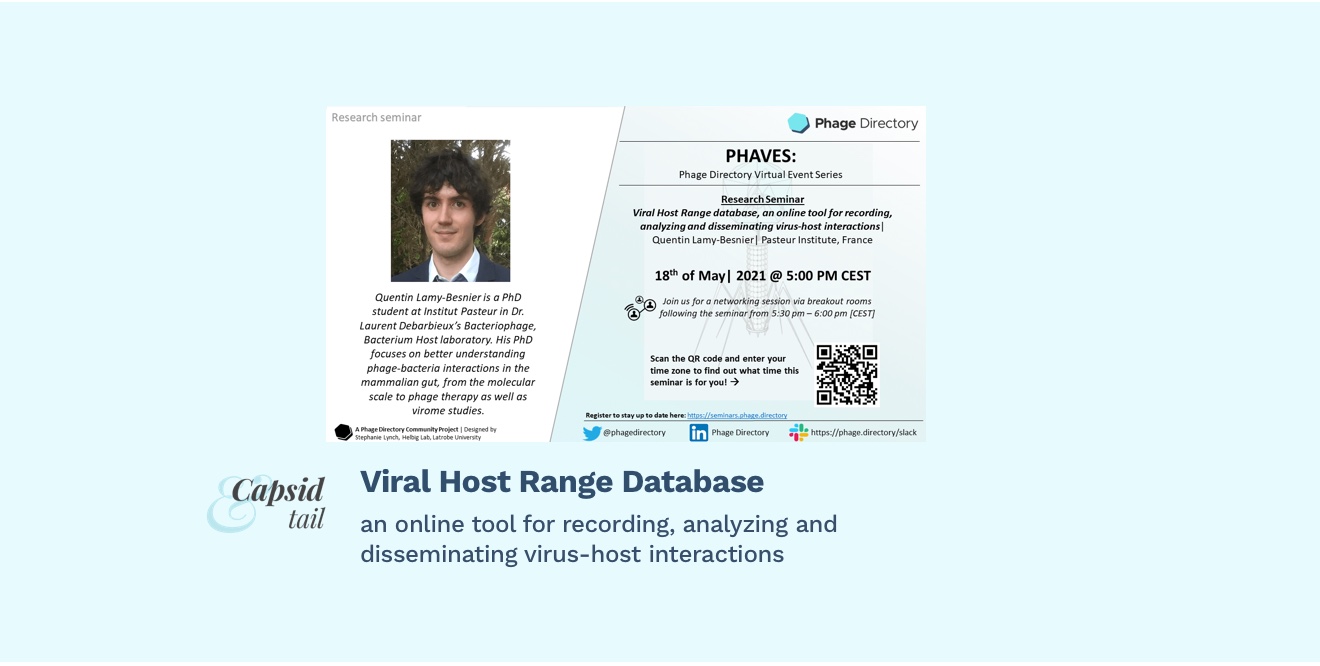Apurva Virmani Johri (Vitalis Phage Therapy, India) and colleagues published a case report in Frontiers in Pharmacology on phage therapy for treatment of chronic bacterial prostatitis. Significant improvements in symptoms and re-testing of samples after phage treatment indicated a reduction in bacterial load and resolution of the infection.
This paper is extra notable because it represents Vitalis Phage Therapy’s first published case report! (It’s also a great example of collaboration with the Eliava Phage Therapy Center!)
Joshua Borin (University of California San Diego) and colleagues published a new paper in PNAS showing that coevolutionary phage training leads to greater bacterial suppression and delays the evolution of phage resistance. For example, they found that a phage trained for 28 days suppressed bacteria ∼1,000-fold for 3-8x longer than its untrained ancestor. Interestingly, one way that this phage improved was by recombining with a defunct prophage gene in the host genome, which doubled its fitness.
Clément Coclet and Simon Roux (DOE Joint Genome Institute) published a review in Current Opinion in Virology on major challenges of host prediction methods for uncultivated phages. They highlight different approaches, giving their distinct strengths and limitations. They also outline complementary experimental assays which are being proposed to validate and refine these bioinformatic predictions.
Eleanor Townsend (University of Warwick) and colleagues published a new review in Frontiers in Cellular and Infection Microbiology on the origins and roles of phages in the human gut microbiome. They review phageome development in infancy and adulthood, and consider the phageome’s role both biologically and in the context of health and disease.
Stephan Tetter (ETH Zurich) and colleagues published a report in Science on developing virus-like ‘artificial nucleocapsid’ carriers for diverse vaccine and delivery applications. They evolved a protein that forms multimeric, spherical cages into a highly efficient capsid that selectively packages its own encoding RNA. Additionally, directed evolution resulted in changes to the encoding RNA structure that enabled efficient uptake versus other cellular RNAs.







